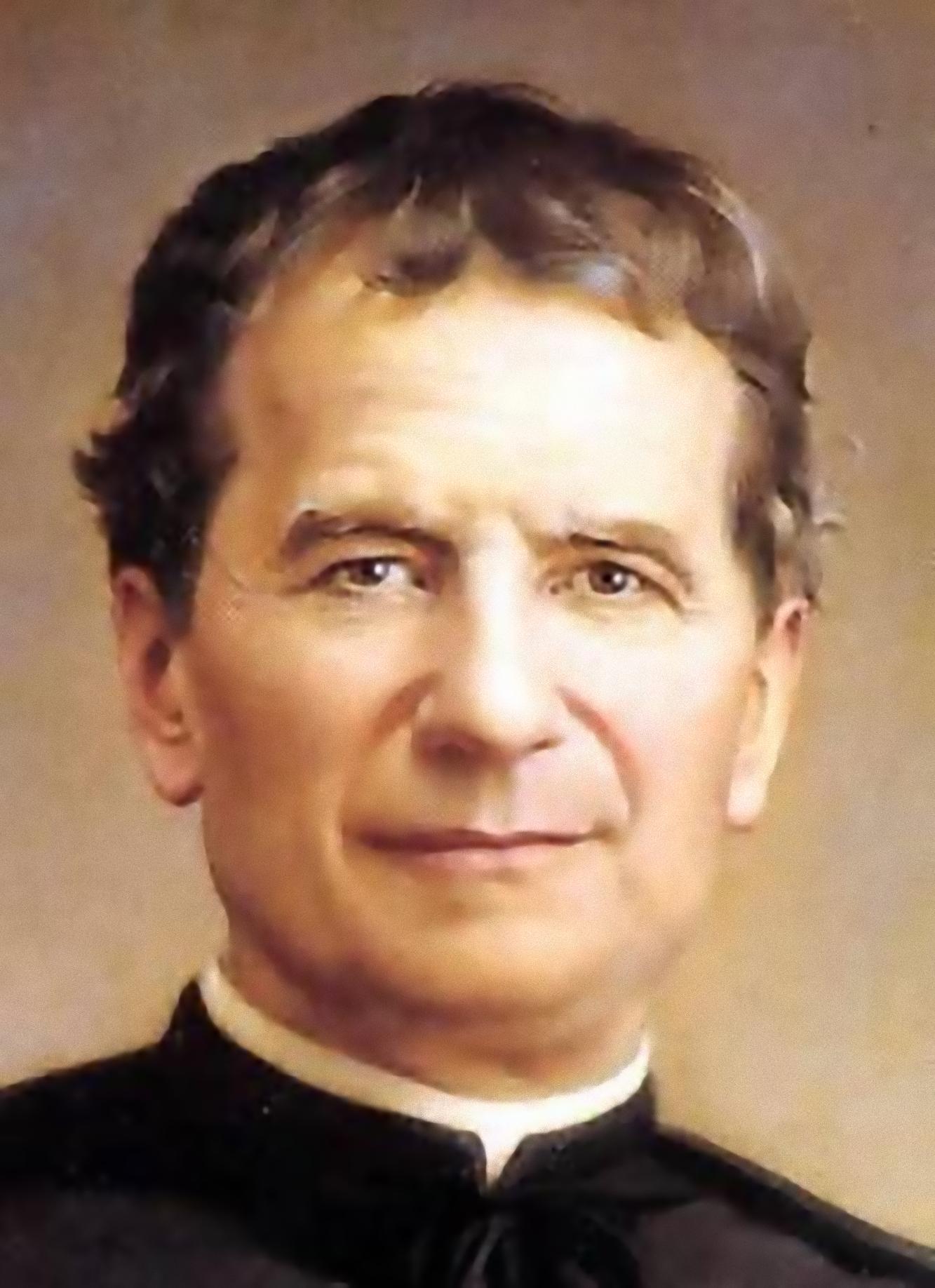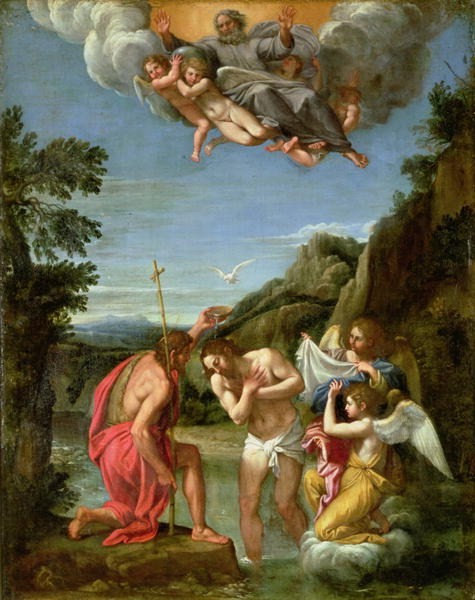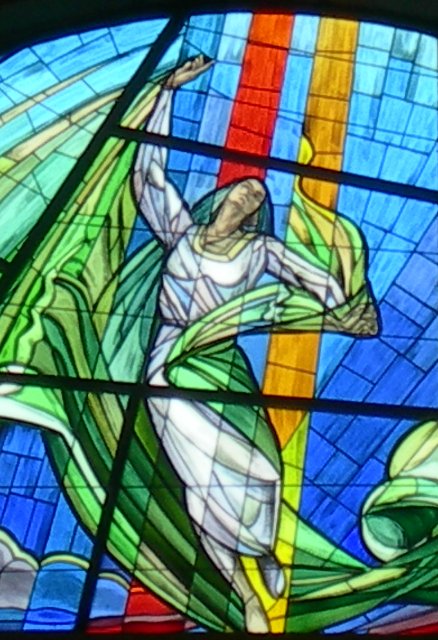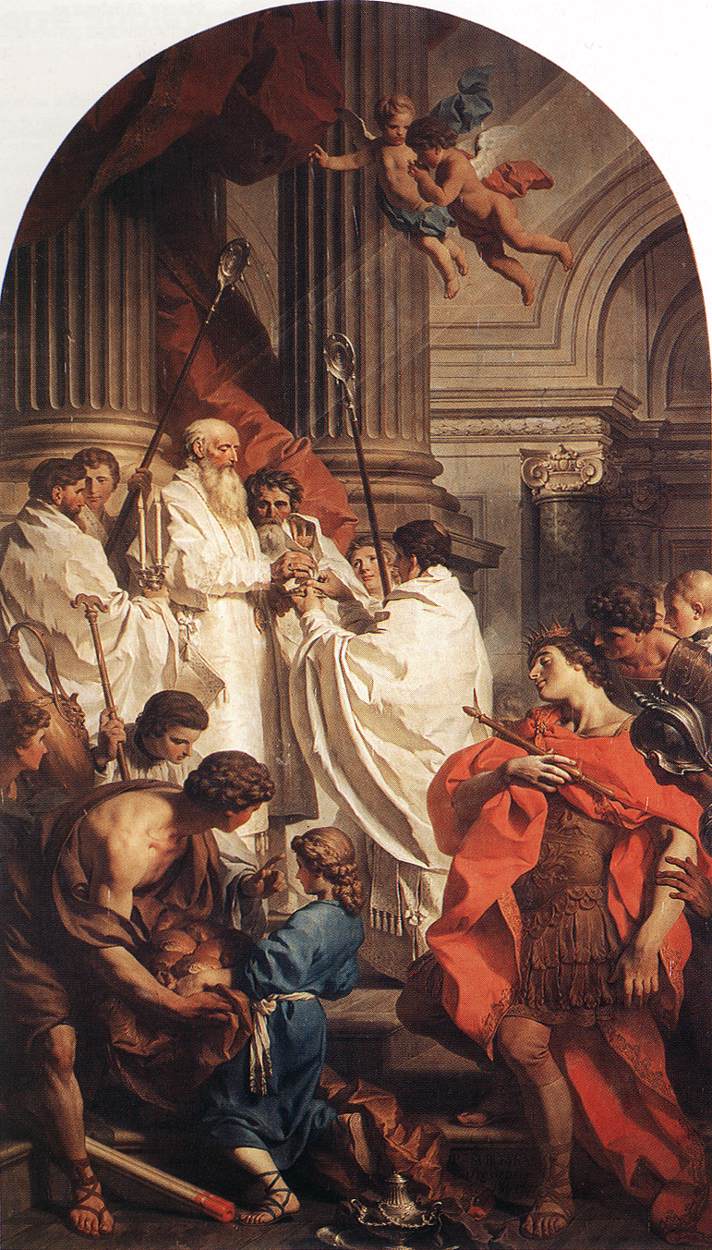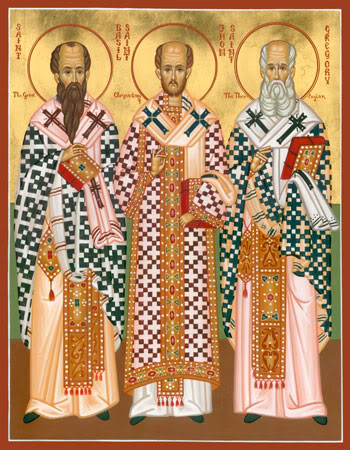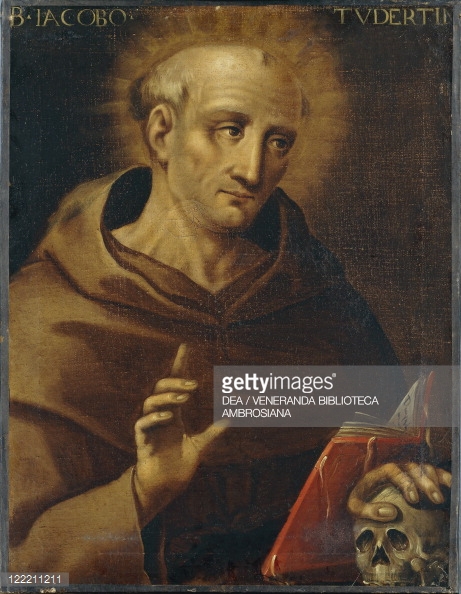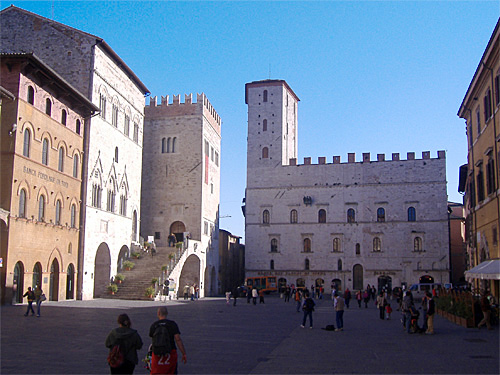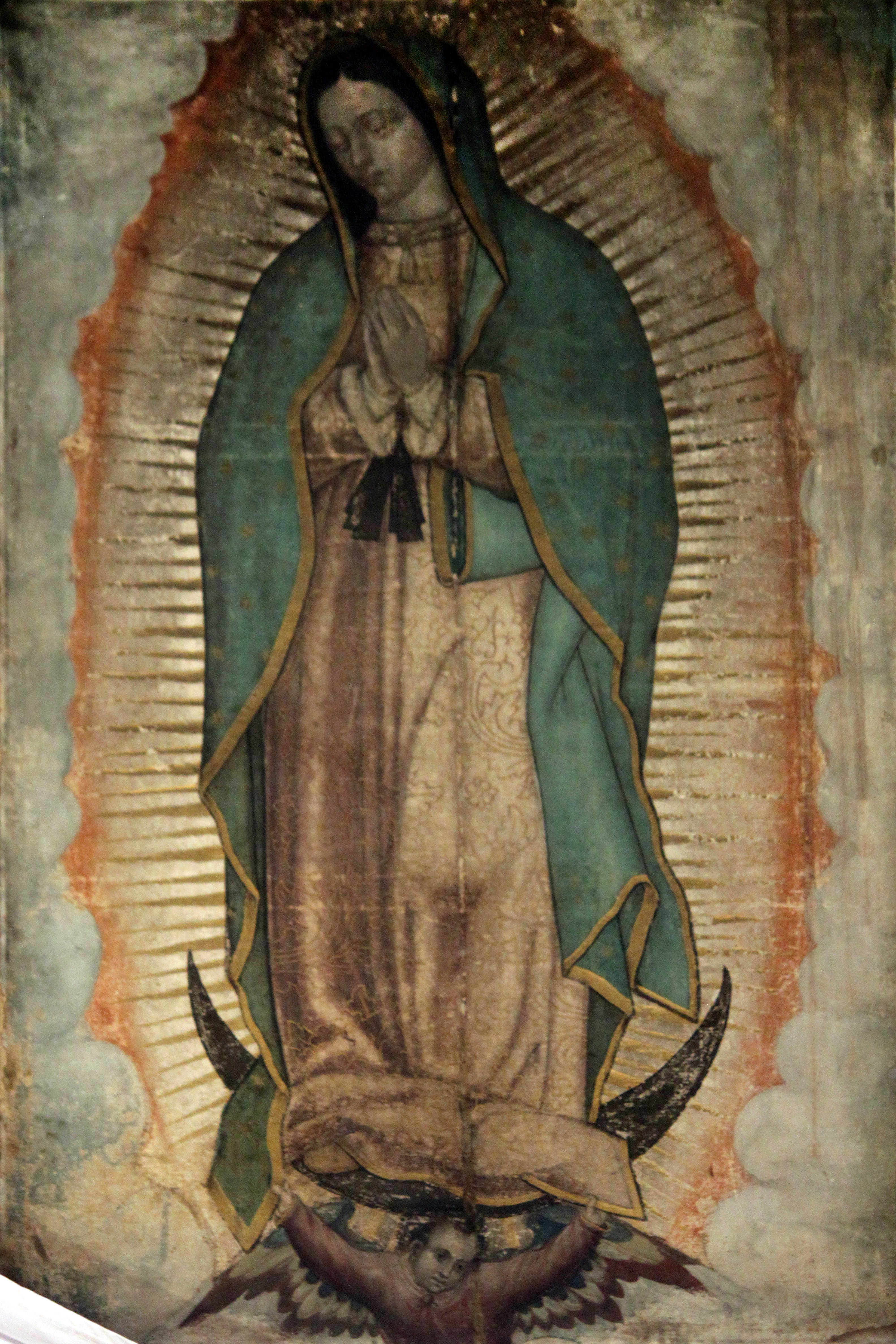In 1867 Pope Pius IX was upset with John Bosco because he wouldn’t take his own dreams seriously enough. Nine years earlier when Pope Pius IX met with the future saint who worked with neglected boys, he learned of the dreams that John had been having since the age of nine, dreams that had revealed God’s will for John’s life. So Pius IX had made a request, “Write down these dreams and everything else you have told me, minutely and in their natural sense.” Pius IX saw John’s dreams as a legacy for those John worked with and as an inspiration for those he ministered to.
Despite Scripture evidence and Church tradition respecting dreams, John had encountered skepticism when he had his first dream at the age of nine. The young Bosco dreamed that he was in a field with a crowd of children. The children started cursing and misbehaving. John jumped into the crowd to try to stop them — by fighting and shouting. Suddenly a man with a face filled with light appeared dressed in a white flowing mantle. The man called John over and made him leader of the boys. John was stunned at being put in charge of these unruly gang. The man said, “You will have to win these friends of yours not with blows but with gentleness and kindness.”
As adults, most of us would be reluctant to take on such a mission — and nine year old John was even less pleased. “I’m just a boy,” he argued, “how can you order me to do something that looks impossible.” The man answered, “What seems so impossible you must achieve by being obedient and acquiring knowledge.” Then the boys turned into the wild animals they had been acting like. The man told John that this is the field of John’s life work. Once John changed and grew in humility, faithfulness, and strength, he would see a change in the children — a change that the man now demonstrated. The wild animals suddenly turned into gentle lambs.
When John told his family about his dream, his brothers just laughed at him. Everyone had a different interpretation of what it meant: he would become a shepherd, a priest, a gang leader. His own grandmother echoed the sage advice we have heard through the years, “You mustn’t pay any attention to dreams.” John said, “I felt the same way about it, yet I could never get that dream out of my head.”
Eventually that first dream led him to minister to poor and neglected boys, to use the love and guidance that seemed so impossible at age nine to lead them to faithful and fulfilled lives. He started out by learning how to juggle and do tricks to catch the attention of the children. Once he had their attention he would teach them and take them to Mass. It wasn’t always easy — few people wanted a crowd of loud, bedraggled boys hanging around. And he had so little money and help that people thought he was crazy. Priests who promised to help would get frustrated and leave.
Two “friends” even tried to commit him to an institution for the mentally ill. They brought a carriage and were planning to trick him into coming with them. But instead of getting in, John said, “After you” and politely let them go ahead. When his friends were in the carriage he slammed the door and told the driver to take off as fast as he could go!
Through it all he found encouragement and support through his dreams. In one dream, Mary led him into a beautiful garden. There were roses everywhere, crowding the ground with their blooms and the air with their scent. He was told to take off his shoes and walk along a path through a rose arbor. Before he had walked more than a few steps, his naked feet were cut and bleeding from the thorns. When he said he would have to wear shoes or turn back, Mary told him to put on sturdy shoes. As he stepped forward a second time, he was followed by helpers. But the walls of the arbor closed on him, the roof sank lower and the roses crept onto the path. Thorns caught at him from all around. When he pushed them aside he only got more cuts, until he was tangled in thorns. Yet those who watched said, “How lucky Don John is! His path is forever strewn with roses! He hasn’t a worry in the world. No troubles at all!” Many of the helpers, who had been expecting an easy journey, turned back, but some stayed with him. Finally he climbed through the roses and thorns to find another incredible garden. A cool breeze soothed his torn skin and healed his wounds.
In his interpretation, the path was his mission, the roses were his charity to the boys, and the thorns were the distractions, the obstacles, and frustrations that would stand in his way. The message of the dream was clear to John: he must keep going, not lose faith in God or his mission, and he would come through to the place he belonged.
Often John acted on his dreams simply by sharing them, sometimes repeating them to several different individuals or groups he thought would be affected by the dream. “Let me tell you about a dream that has absorbed my mind,” he would say.
The groups he most often shared with were the boys he helped — because so many of the dreams involved them. For example, he used several dreams to remind the boys to keep to a good and moral life. In one dream he saw the boys eating bread of four kinds — tasty rolls, ordinary bread, coarse bread, and moldy bread, which represented the state of the boys’ souls. He said he would be glad to talk to any boys who wanted to know which bread they were eating and then proceeded to use the occasion to give them moral guidance.
He died in 1888, at the age of seventy-two. His work lives on in the Salesian order he founded.
Prayer:
Saint John Bosco, you reached out to children whom no one cared for despite ridicule and insults. Help us to care less about the laughter of the world and care more about the joy of the Lord. Amen
“First tell the devil to rest, and then I’ll rest, too.” – St John Bosco
“Patience smooths away lots of difficulties.”
—St. John Bosco
“All for God and for His glory. In whatever you do, think of the glory of God as your main goal.” –St. John Bosco
“Give me souls–the souls of youngsters.” – St John Bosco
“Fly from bad companions as from the bite of a poisonous snake. If you keep good companions, I can assure you that you will one day rejoice with the blessed in Heaven; whereas if you keep with those who are bad, you will become bad yourself, and you will be in danger of losing your soul.” – Saint John Bosco
“Enjoy yourself as much as you like – if only you keep from sin.” – Saint John Bosco
“We find ourselves in this earth as in a tempestuous sea, in a desert, in a vale of tears. Now then, Mary is the Star of the Sea, the solace of our desert, the light that guides us towards heaven.”
—St. John Bosco
“Without confidence and love, there can be no true education. If you want to be loved…you must love yourselves, and make your children feel that you love them.”
—St. John Bosco
“Do you want our Lord to give you many graces? Visit him often. Do you want him to give you few graces? Visit him seldom. Visits to the Blessed Sacrament are powerful and indispensable means of overcoming the attacks of the devil. Make frequent visits to Jesus in the Blessed Sacrament and the devil will be powerless against you.” – Saint John Bosco
“My sons, in my long experience very often I had to be convinced of this great truth. It is easier to become angry than to restrain oneself, and to threaten a boy than to persuade him. Yes, indeed, it is more fitting to be persistent in punishing our own impatience and pride than to correct the boys. We must be firm but kind, and be patient with them. See that no one finds you motivated by impetuosity or willfulness. It is difficult to keep calm when administering punishment, but this must be done if we are to keep ourselves from showing off our authority or spilling out our anger. Let us regard those boys over whom we have some authority as our own sons. Let us place ourselves in their service. Let us be ashamed to assume an attitude of superiority. Let us not rule over them except for the purpose of serving them better. This was the method that Jesus used with the apostles. He put up with their ignorance and roughness and even their infidelity. He treated sinners with a kindness and affection that caused some to be shocked, others to be scandalized and still others to hope for God’s mercy. And so he bade us to be gentle and humble of heart.” – from a letter by Saint John Bosco
“This was the method that Jesus used with the apostles: He put up with their ignorance and roughness and even their infidelity. He treated sinners with a kindness and affection that caused some to be shocked, others to be scandalized and still others to hope for God’s mercy. And so He bad us to be gentle and humble of heart.” -St John Bosco
“Health is God’s great gift, and we must spend it entirely for Him. Our eyes should see only for God, our feet walk only for Him, our hands labor for Him alone; in short, our entire body should serve God while we still have the time. Then, when He shall take our health and we shall near our last day, our conscience will not reproach us for having misused it.”
–St. John Bosco
“Take refuge often at the feet of Jesus. My dear ones, the visit to the Blessed Sacrament is an extremely necessary way to conquer the devil. Therefore, go often to visit Jesus, and the devil will not come out victorious against you.”
-St. John Bosco
“We find ourselves in this earth as in a tempestuous sea, in a desert, in a vale of tears. Now then, Mary is the Star of the Sea, the solace of our desert, the light that guides us towards heaven.”
— St. John Bosco
“Be brave and try to detach your heart from worldly things. Do your utmost to banish darkness from your mind and come to understand what true, selfless piety is. Through confession, endeavor to purify your heart of anything which may still taint it. Enliven your faith, which is essential to understand and achieve piety.”
–St. John Bosco
“Many people [in authority] oppose us, persecute us, and would like even to destroy us, but we must be patient. As long as their commands are not against our conscience, let us obey them, but when the case is otherwise, let us uphold the rights of God and of the Church, for those are superior to all earthly authority.”
—St. John Bosco
The devil will use every weakness of ours to prevent our good works, to prevent service to Him, to do His will, to make it easier to lure others into his snare. Where is your faith? Where is trust? Mt 19:14.
St John Bosco, pray for us!
Lord, have mercy on us! Lord, give us the courage, the strength, the fortitude to never abandon our mission You gave us, and You insist on our ministering to the weak, the innocent, the young, those most in need of the Gospel.
Love,
Matthew

